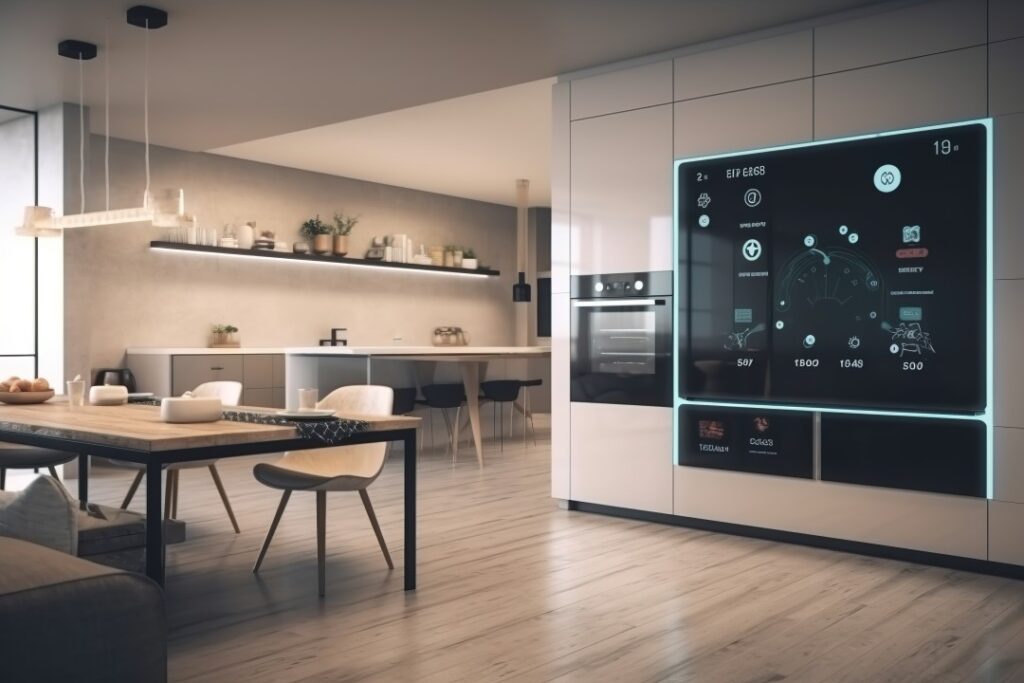Tesla, a globally known brand recognized for its electric vehicles (EV), renewable energy source (solar panels) and batteries. The company is set to venture into another technology: the smart home. In 2020, it expanded its product range to making smart home appliances with the goal of making them a part of every household.
Tesla shows growing strides in AI technology, as evident in its Autopilot system and full self-driving (supervised) capabilities of some of its EVs, Cybercab robotaxi and its soon-to-be released humanoid general purpose Optimus robot. This gives a huge level of promise to the AI-powered smart home system it’s about to launch as its AI is already capable of interpreting complex visual data and making real-time decisions.
Tesla started its smart home system journey by producing common household devices that could all be controlled through the TESLA Smart app. This allows the user to have control over his/her household even when miles away. Products in Tesla’s Smart home line include:
- Smart Air Purifiers/Dehumidifiers/Humidifiers/Aroma Diffusers/Conditioners
- Smart Thermostatic Valve for smart heating
- Smart Cameras
- Smart Sensors with features that keep track of humidity, temperature, gas leaks or suspicious movement.
- Smart Plugs and Switches
- Smart Vacuum Cleaners
- Smart Baby Products: Baby Cameras, Breast pump, Multi Sterilizer, Nasal Aspirator
- Smart Scales with features that collect data on Weight, BMI, Body fat (in%), Body water (in%), metabolic age and Muscle Mass. All values are visible on the app after a step on the scale.
- Smart Toothbrush and Flosser
- Smart Beauty Care: Cleaning face Brush,Ice Cooling IPL(Intense Pulsed Light) Epilator for hair removal, Hair Curling Combs and dryers.
- Smart Pillows with features like Sleep monitoring, Cervical Spine heating with FIR (Far Infrared Ray) technology, Built-in speakers, Timer and washable covers.
- Smart Pet Products: Automatic Pet Feeder with camera (with night vision and built-in speakers), Self-cleaning cat toilet, Laser Dot cat toy, Pet Feeder Spin, Fish Feeder and Pet Sofa.
- Smart Lighting products: Bulbs, LED Strips and Table Lamps with almost 16 million colour options.
- Smart Healthcare Equipments: Oximeter (for measuring Oxygen saturation, heart rate and perfusion index), Thermometer, Heating Massager (with a choice of 15 intensity levels and 3 heat levels).
Tesla’s smart home products have something for everyone and everything in the home. Every appliance can be controlled and monitored from one app, which is the key foundation to building a smart home.
Tesla Smart Home Key Components and Potential
- Multifunctionality, this will involve the fusion of multiple functions into one smart home product, like an air purifier that can function as a wireless charger, an LED light and table.
- Automation on another level: automated devices that operate without human support. For example, a self-cleaning and sufficient vacuum cleaner and mopping device.
- AI Habit Learning: this would enable the AI in Tesla smart devices to adapt to its users habits and optimize the operation based on its users lifestyle and daily routine
- Energy Ecosystem: integrating Tesla’s Solar roof, Powerwall and Powerpack which make use of AI to optimize energy consumption and storage to create a self-sufficient energy grid for homes. Further developments in the AI system would enable it to learn from users behavior, weather patterns and energy demand to predict energy usage and adjust power flow by seamlessly switching between the grid and battery power.
- Tesla Optimus: the launch of Optimus, Tesla’s general-purpose humanoid robot holds an immense potential for Tesla’s smart home. The robot is capable of carrying out simple household chores, effective for providing security and can be adopted in a hospice. Optimus will serve as a physical manifestation of Tesla AI.
- Tesla smart home connection to Tesla EV: Tesla’s EV can be connected to the smart home system just like the smart app.
Is This the Next Big Thing?
Tesla’s vision for a smart home system that not only offers comfort, but sustainability holds a lot of promise and would be groundbreaking if/when fully executed, however, this vision is not without challenges.
- Tesla products are not known to be cost efficient and are often tagged as premium products. This would limit procurement of its smart home system to the elites in the society.
- There will be concerns regarding data privacy and security as regards to the vast amount of data the smart home system will require from its users.
Having a home that knows and adapts to the individual habits of its owners would change how people live and interact with their homes. Should Tesla be able to mitigate these concerns, its smart home system would serve as the next big thing in home automation.

